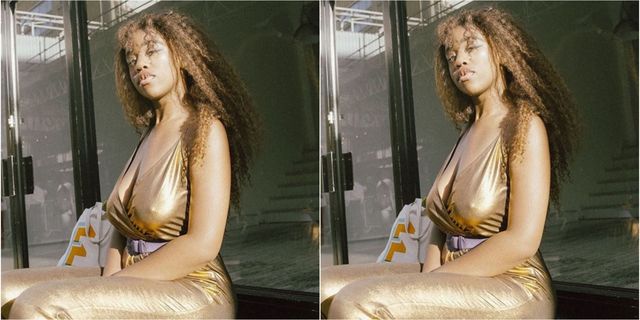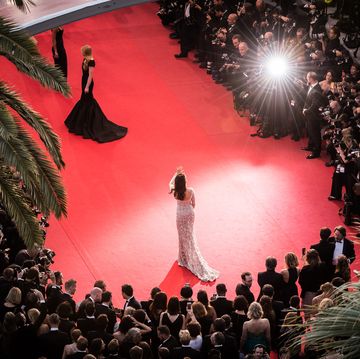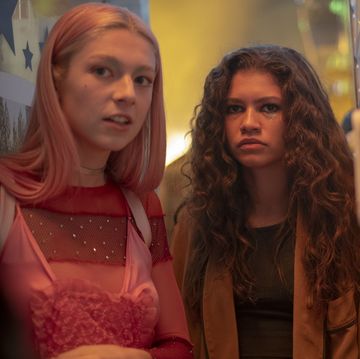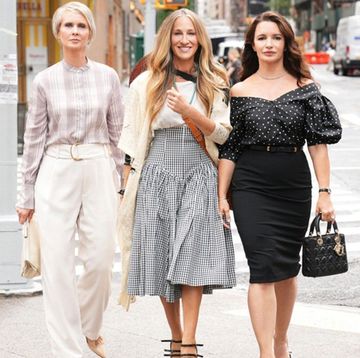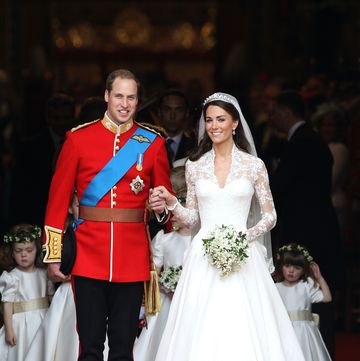The Slumflower, a.k.a. Chidera Eggerue, is the south London native who is wise beyond her years. At 23, Eggerue has just spent the last two years writing a book.
Titled 'What A Time To Be Alone' it's set to be the ultimate guide for self-love and acceptance, something so many of us need.
In fact, the young body positive blogger is seen as something of a millennial sage - you can't move for Slumflower quotes on many an early 20 year-old's Twitter feed.
Snappy phrases such as 'You had a life before him. You'll have a life after you block him', and 'Complete adoration is the new bare minimum' are just some of the adages that the speaker and campaigner implores of her followers.
One of her most popular and eye-catching movements, however, is that hashtag she started: #SaggyBoobsMatter. And, whilst it is clearly about the type of breasts that are rarely seen, it has come to be about body-standards, bullying and our lack of self-love in general.
Wanting to know more about the woman behind the hashtag, we reached out to one of our 'Future History Makers', to see what she had to say.
Can you tell us about your 'saggy boob' journey?
I became bored of disliking myself, tired of finding a reason to condemn myself, and I grew exhausted of avoiding certain outfits that would reveal the posture of my boobs.
At the age of 19, I began by making small decisions, like choosing not to wear a bra. That then developed into me refusing to feel intimidated by deep-plunge dresses or tops.
There is something about the unapologetic wording of your movement that is powerful, can you tell us about the phrase 'Saggy Boobs Matter'?
The purpose of this movement is to let people know that their bodies matter.
I intentionally worded it #SAGGYBOOBSMATTER for people to realise the urgency of representation.
There are young women living their lives hating themselves because they do not see their body types represented enough in positions of positivity and success. This matters.
Much of the body-positive movement is made up of white, able-bodied, 'curvy' women - what do you think about that?
The body positivity movement deserves to be centred by fat, dark-skinned black women.
To be fat means receiving horrible abuse online, unsolicited advice and a lot of misrepresentation. And to be a black woman existing in such space is to be spoken over, gaslighted and left to fend for yourself with the assumption that you're 'the stronger one' because the world views blackness as sub-human.
Now imagine being both fat and black.
The most marginalised deserve the most representation, yet white women seem to always find a way to centre themselves in movements that don't stop them from benefiting off their whiteness.
White women can absolutely take part in body positivity movements but they simply need to make sure their participation carries a message of intersectionality or else, it only benefits them.
There was a high-profile Nigerian musician who mocked you online, how did that feel?
It's disappointing to see strangers throw slurs at you for the body you didn't even create.
It was definitely horrible to be body-shamed on the internet by a high-profile Nigerian musician because when I spoke up about it, a lot of people rushed to his defence, claiming that comparing my body to a dying phone battery wasn't body shaming and that I was just 'being sensitive'.
Women are not allowed to be vulnerable without being dismissed as sensitive, exaggerated and dramatic.
You're only 23 , do you ever suffer from that ever-dominating 'imposter syndrome'?
I do but I combat it by reminding myself that I am as good as I decide to be, and that we are all going to die. So I'm going to express everything I can and enjoy as much of my existence as I can whilst my lungs still work!
Daisy Murray is the Digital Fashion Editor at ELLE UK, spotlighting emerging designers, sustainable shopping, and celebrity style. Since joining in 2016 as an editorial intern, Daisy has run the gamut of fashion journalism - interviewing Molly Goddard backstage at London Fashion Week, investigating the power of androgynous dressing and celebrating the joys of vintage shopping.
